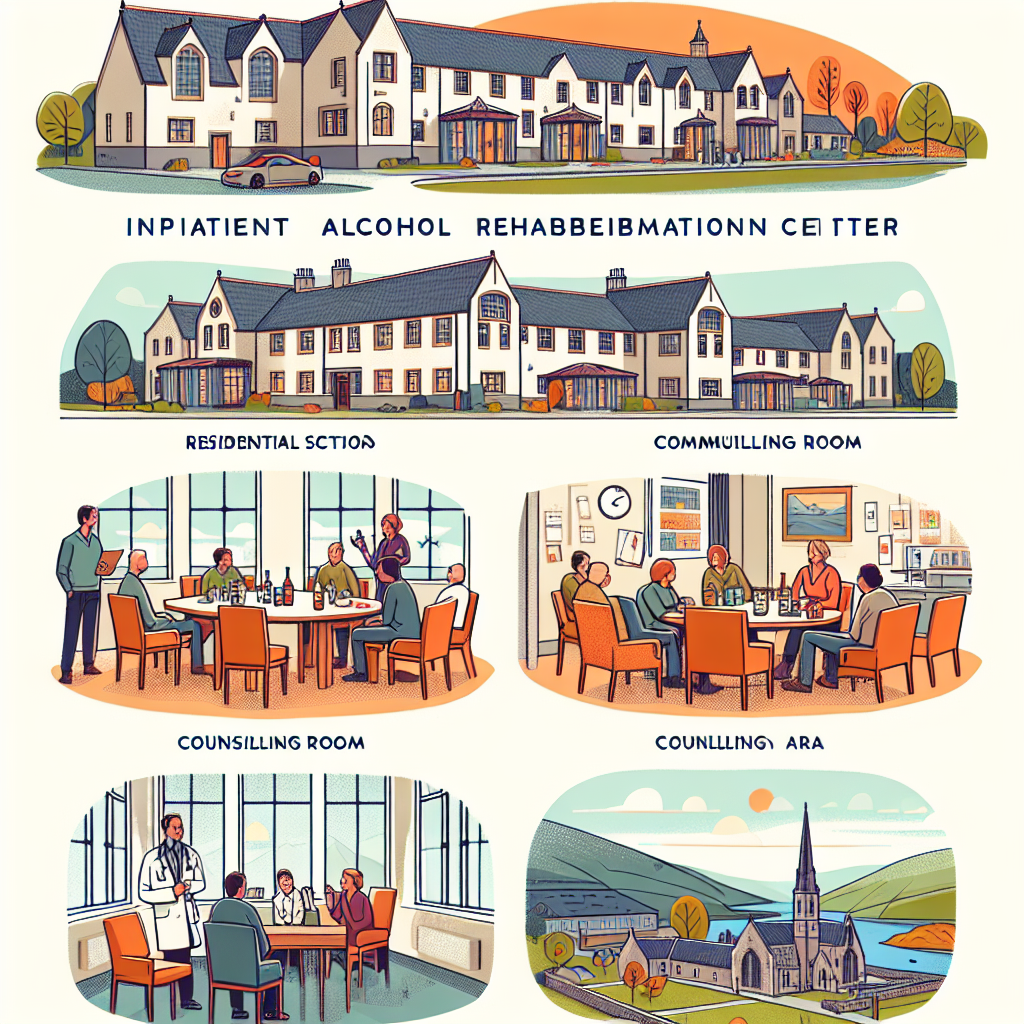-
Table of Contents
“Overcoming Addiction: Navigating the Complex Path of Heroin Rehab in London”
Introduction
Heroin rehabilitation in London presents a complex array of challenges that can significantly impact the effectiveness of treatment and recovery. These challenges include the high availability and accessibility of heroin, which can make relapse more likely. Additionally, the stigma associated with addiction can deter individuals from seeking help. The city’s diverse population also means that cultural and language barriers can complicate the delivery of care. Limited resources and long waiting times for treatment services further exacerbate the problem, making it difficult for individuals to receive timely and adequate support. Moreover, the high cost of living in London can add financial stress, which may hinder recovery efforts. Addressing these multifaceted challenges requires a comprehensive and tailored approach to ensure successful rehabilitation outcomes.
Overcoming Psychological Barriers in Heroin Rehab in London
Overcoming psychological barriers in heroin rehab in London presents a multifaceted challenge that requires a comprehensive approach. The journey to recovery is often fraught with emotional and mental obstacles that can seem insurmountable. However, understanding these barriers and addressing them with effective strategies can pave the way for a successful rehabilitation process.
One of the primary psychological barriers in heroin rehab is the deep-seated fear of withdrawal symptoms. Heroin withdrawal can be intensely uncomfortable, both physically and mentally, leading many individuals to avoid seeking help. This fear is compounded by the anxiety of facing life without the crutch of the drug. To overcome this, rehab centers in London employ a combination of medical detoxification and psychological support. Medical professionals provide medications to ease withdrawal symptoms, while therapists offer counseling to help individuals manage their fears and anxieties.
Another significant barrier is the stigma associated with heroin addiction. Many individuals feel a profound sense of shame and guilt, which can prevent them from seeking the help they need. This stigma is not only self-imposed but also reinforced by societal attitudes. In London, rehab centers are working to combat this stigma by fostering a supportive and non-judgmental environment. Group therapy sessions, for instance, allow individuals to share their experiences and realize they are not alone in their struggles. This sense of community can be incredibly empowering and can help to dismantle the barriers of shame and isolation.
Moreover, the psychological impact of past traumas often plays a crucial role in heroin addiction. Many individuals turn to heroin as a way to cope with unresolved emotional pain. Addressing these underlying issues is essential for long-term recovery. In London, rehab programs incorporate trauma-informed care, which involves understanding and addressing the impact of trauma on an individual’s mental health. Therapists use techniques such as cognitive-behavioral therapy (CBT) and eye movement desensitization and reprocessing (EMDR) to help individuals process their traumas and develop healthier coping mechanisms.
Additionally, the lack of a strong support system can be a significant hurdle in the rehab process. Many individuals struggling with heroin addiction have strained relationships with family and friends, which can leave them feeling isolated and unsupported. Rehab centers in London recognize the importance of rebuilding these connections. Family therapy sessions are often included in the treatment plan to help mend relationships and create a supportive network for the individual in recovery. This support system can provide the encouragement and motivation needed to stay on the path to recovery.
Furthermore, the challenge of maintaining long-term sobriety cannot be overlooked. The transition from a structured rehab environment back to everyday life can be daunting. To address this, London rehab centers offer aftercare programs that provide ongoing support and resources. These programs may include continued therapy, support group meetings, and access to sober living facilities. By offering a continuum of care, individuals are better equipped to navigate the challenges of life after rehab and maintain their sobriety.
In conclusion, overcoming psychological barriers in heroin rehab in London requires a holistic and compassionate approach. By addressing fears of withdrawal, combating stigma, healing past traumas, rebuilding support systems, and providing ongoing care, rehab centers can help individuals overcome these obstacles and achieve lasting recovery. The journey may be challenging, but with the right support and resources, it is entirely possible to overcome these barriers and reclaim a life free from heroin addiction.
Addressing Social Stigma in Heroin Rehabilitation Programs in London
Addressing social stigma in heroin rehabilitation programs in London is a multifaceted challenge that requires a nuanced approach. The journey to recovery is already fraught with personal and physical hurdles, but the added burden of societal judgment can make the path even more arduous. In London, a city known for its diversity and vibrancy, the stigma surrounding heroin addiction remains a significant barrier to effective rehabilitation.
One of the primary challenges is the pervasive negative perception of heroin users. Society often views addiction as a moral failing rather than a medical condition, which can lead to feelings of shame and isolation among those struggling with substance abuse. This stigma can deter individuals from seeking help, fearing judgment from their peers, employers, and even family members. Consequently, many suffer in silence, their conditions worsening over time.
Moreover, the media often portrays heroin addiction in a sensationalized manner, focusing on the most extreme cases and reinforcing harmful stereotypes. This skewed representation can influence public opinion, making it harder for those in need to come forward. In London, where the media landscape is vast and influential, changing these narratives is crucial. Rehabilitation programs must work to educate the public, highlighting that addiction is a complex disease that requires compassion and understanding.
Another significant challenge is the lack of anonymity in densely populated urban areas like London. The fear of being recognized at a local rehab center can be a substantial deterrent. To address this, some programs have started offering more discreet services, such as online counseling and support groups. These options provide a level of privacy that can encourage more individuals to seek help without the fear of exposure.
Furthermore, the stigma extends to the healthcare system itself. Some medical professionals may hold biases against those with addiction issues, consciously or unconsciously, which can affect the quality of care provided. Training and education for healthcare providers are essential to ensure that they approach addiction with the same empathy and professionalism as any other medical condition. By fostering a more supportive environment within the healthcare system, individuals are more likely to receive the comprehensive care they need.
Community support also plays a vital role in combating stigma. Local organizations and support groups can offer a sense of belonging and understanding that is often missing in the broader societal context. In London, numerous community-based initiatives are working tirelessly to create safe spaces for those in recovery. These groups provide not only emotional support but also practical assistance, such as job training and housing resources, which are crucial for long-term recovery.
Education is another powerful tool in addressing social stigma. Schools, workplaces, and community centers can all serve as platforms for spreading awareness about the realities of addiction and the importance of rehabilitation. By educating the public, we can slowly shift perceptions and create a more inclusive society that supports rather than ostracizes those in need.
In conclusion, addressing social stigma in heroin rehabilitation programs in London is a complex but essential task. It requires a concerted effort from all sectors of society, including the media, healthcare providers, community organizations, and the general public. By fostering a more compassionate and understanding environment, we can help those struggling with addiction feel less isolated and more empowered to seek the help they need. The journey to recovery is challenging, but with the right support and a shift in societal attitudes, it is undoubtedly achievable.
Q&A
1. **Question:** What are some common challenges faced by individuals undergoing heroin rehab in London?
**Answer:** Common challenges include dealing with withdrawal symptoms, overcoming psychological dependence, and accessing timely and adequate support services.
2. **Question:** How does the availability of rehab facilities impact heroin rehab in London?
**Answer:** Limited availability of rehab facilities can lead to long waiting times, reduced access to specialized care, and increased pressure on existing services, making it harder for individuals to receive the help they need promptly.
Conclusion
The challenges of heroin rehab in London include limited access to treatment facilities, long waiting times for public services, high costs of private rehab centers, social stigma associated with addiction, and the availability of heroin on the streets. Additionally, the complexity of addressing co-occurring mental health issues and the need for comprehensive aftercare support further complicate the rehabilitation process. These factors collectively hinder the effectiveness and accessibility of heroin rehab in the city.



